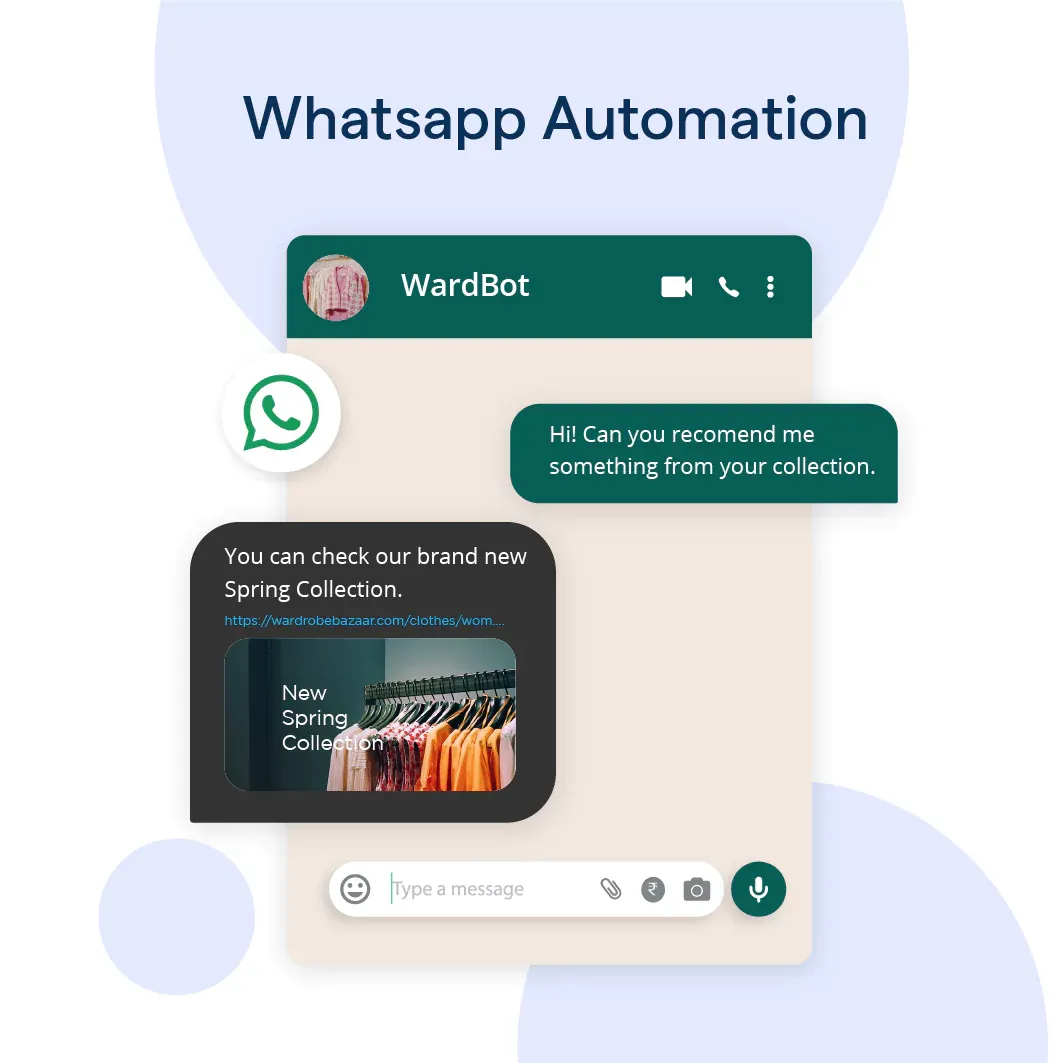What is WhatsApp Automation?
WhatsApp Automation refers to the process of using technology, such as artificial intelligence (AI), chatbots, and automated messaging features, to streamline and enhance communication on the WhatsApp platform. This allows businesses and individuals to automate repetitive tasks, improve customer service, and save time and resources.
WhatsApp Automation has become increasingly important as businesses and individuals rely more on instant messaging platforms for communication. By automating tasks on WhatsApp, users can optimize their interactions, reduce response times, and deliver a more personalized experience to their customers and contacts.
Why Use WhatsApp Automation?
Benefits for Businesses
WhatsApp Automation offers numerous benefits for businesses, including:
- Increased efficiency and productivity
- Improved customer service and satisfaction
- Reduced response times and faster resolution of queries
- Enhanced engagement and personalization
- Streamlined communication and collaboration
Improving Customer Experience
By automating certain aspects of communication on WhatsApp, businesses can improve the overall customer experience. Automated replies, greetings, and chatbots can provide instant assistance, helping customers feel valued and supported.
Time and Cost Savings

WhatsApp Automation can save businesses time and money by reducing manual tasks and streamlining processes. This frees up staff to focus on more strategic initiatives and allows businesses to allocate resources more effectively.
Who can Benefit from WhatsApp Automation?
Industries and Sectors
WhatsApp Automation can benefit a wide range of industries and sectors, including:
- Retail and e-commerce
- Banking and finance
- Travel and hospitality
- Healthcare
- Education
- Government and public services
- Nonprofits and NGOs
Small and Large Businesses
Both small and large businesses can benefit from WhatsApp Automation. Small businesses can use automation to scale their operations and improve customer service, while large businesses can leverage automation to manage high volumes of customer interactions more efficiently.
Individual Users
Individual users can also benefit from WhatsApp Automation by automating tasks such as setting reminders, organizing events, and managing group chats.
When to Implement WhatsApp Automation?
Identifying the Right Time
The right time to implement WhatsApp Automation depends on the specific needs and goals of a business or individual. Factors to consider include:
- The volume of WhatsApp messages and interactions
- The complexity of customer inquiries
- The availability of resources for setup and maintenance
- The potential return on investment (ROI) of automation
Evaluating Business Needs
Before implementing WhatsApp Automation, it's essential to evaluate the current and future needs of a business. This includes identifying areas where automation can add value, such as customer support, sales, and marketing.
Scaling with automation
As a business grows, WhatsApp Automation can help scale operations and maintain a high level of customer service. By automating tasks and processes, businesses can ensure that they continue to meet the needs of their customers as they expand.
Where to Find WhatsApp Automation Tools?
Official WhatsApp Business API
The official WhatsApp Business API allows businesses to build custom automation solutions and integrate them with their existing systems. The API provides a range of features, including automated replies, message templates, and chatbot integration.
Third-Party Automation Platforms
There are several third-party platforms that offer WhatsApp Automation tools, such as BotPenguin, ManyChat, Chatfuel, and Twilio. These platforms provide a range of features and integrations, allowing businesses to choose the solution that best meets their needs.
Comparing and Choosing the Right Tool
When selecting a WhatsApp Automation tool, it's essential to compare features, pricing, and ease of use. Businesses should also consider the level of support provided by the platform and the availability of resources for setup and maintenance.
How Does WhatsApp Automation Work?
Step 1
Setting Up WhatsApp Automation
Setting up WhatsApp Automation typically involves:
- Choosing an automation tool or platform
- Creating a WhatsApp Business account
- Configuring automation features, such as automated replies, chatbots, and message templates
- Testing and refining the automation setup
Step 2
Integration with Existing Systems
Many WhatsApp Automation tools and platforms offer integration with existing systems, such as CRM, helpdesk, and marketing platforms. This allows businesses to streamline their processes and ensure that all customer interactions are tracked and managed effectively.
Step 3
Workflow and Process Automation
WhatsApp Automation can be used to automate workflows and processes, such as:
- Sending order confirmations and shipping updates
- Providing customer support and answering FAQs
- Promoting products and services through targeted messaging
- Managing appointment bookings and reminders
Types of WhatsApp Automation Features
Automated Replies and Greetings
Automated replies and greetings allow businesses to provide instant responses to common inquiries, such as business hours, contact information, and product availability. This helps improve customer satisfaction and reduces response times.
Chatbots and AI

Chatbots and AI can be used to handle more complex customer interactions, such as answering questions, providing recommendations, and processing transactions. By leveraging AI, businesses can deliver a more personalized and engaging experience on WhatsApp.
Broadcast and Group Messaging
Broadcast and group messaging features enable businesses to send targeted messages to multiple contacts simultaneously. This can be used for marketing campaigns, promotions, and updates.
WhatsApp Automation Best Practices
Maintaining Compliance with WhatsApp Policies
When using WhatsApp Automation, it's essential to comply with WhatsApp's policies and guidelines. This includes obtaining user consent for messaging, respecting user privacy, and adhering to message frequency limits.
Balancing Automation and Human Interaction
While automation can improve efficiency and customer service, it's important to strike a balance between automation and human interaction. Businesses should ensure that customers can easily reach a human representative when needed and that automation doesn't compromise the quality of service.
Measuring and Improving Automation Performance
Regularly monitoring and analyzing the performance of WhatsApp Automation can help businesses identify areas for improvement and optimize their setup. Key performance indicators (KPIs) to track include response times, customer satisfaction, and ROI.
Frequently Asked Questions
What is WhatsApp Automation?
WhatsApp Automation refers to using third-party tools or APIs to automate tasks like sending messages, managing contacts, and setting auto replies within the WhatsApp platform.
How can I use WhatsApp Automation for my business?
You can use WhatsApp Automation for customer support, marketing campaigns, appointment reminders, and more. Utilize chatbots, auto replies, and APIs to streamline communication and improve efficiency.
What tools are available for WhatsApp Automation?
Popular tools for WhatsApp Automation include BotPenguin, WhatsApp Business API, Twilio API for WhatsApp, and many third-party auto reply apps like AutoResponder for WhatsApp or WhatsAuto.
Is WhatsApp Automation allowed by WhatsApp?
WhatsApp allows automation through its Business API, but using unofficial third-party tools or scripts may violate their terms of service and result in account restrictions or bans.
Can I integrate WhatsApp Automation with other software?
Yes, many automation tools and APIs offer integration with CRM systems, helpdesk software, and marketing platforms, allowing seamless communication and data synchronization across multiple channels.

